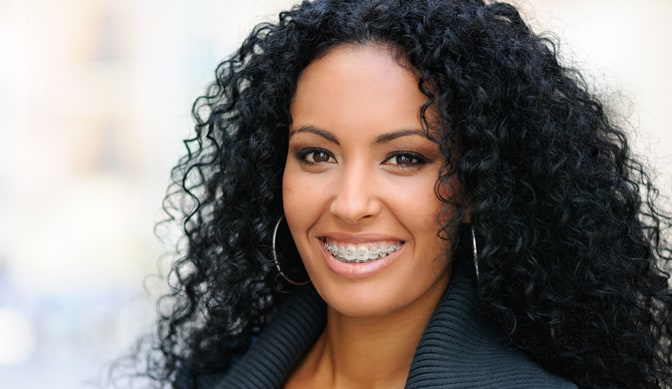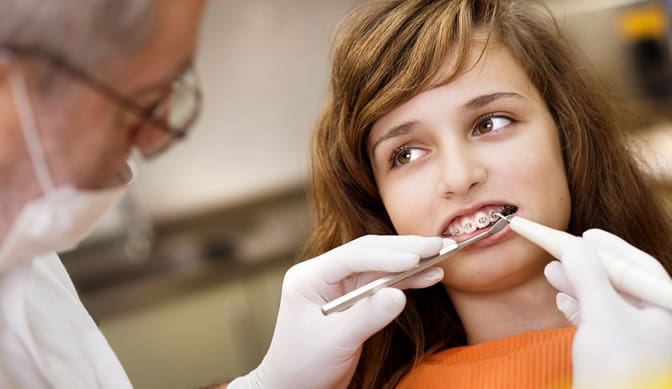Traditional Braces Near You
Traditional braces are most commonly used for straightening crooked or crowded teeth. They are also used to correct a misaligned bite and solve jaw problems. Traditional braces can help eliminate problems you may have while eating, speaking, or self-confidence. Out of the many teeth-straightening methods available, traditional braces are the most effective. Advancements in dental technology have allowed for traditional braces to be improved, making them more comfortable for patients.

What Are The Benefits of Traditional Braces?
Traditional braces consist of three main parts: bands, brackets, and archwire. The metal brackets are placed on your teeth using an adhesive and connected by wire. They require regular visits to your orthodontist for periodic tightening. This gradually adds pressure to the teeth and helps to push them into a straightened position and align your jaw.
Traditional braces are secured to your teeth, this differs from other alignment options because they are often removable which means we can take a break. Although this may not seem as convenient as removable teeth straightening methods, it does make it the most effective form of teeth straightening.
Traditional braces can also be very cost-effective when compared to other options. This can be beneficial for those that want to straighten but are concerned with their budget.

How Do I Take Care of My Braces?
When a patient does receive braces it will require more careful oral hygiene care. This can include careful flossing and longer brushing. It may be tedious but it is well worth it.
When a patient receives braces they also need to be careful with them when eating or engaging in physical activity. Hard or sticky foods can get stuck or even break braces. Requiring you to make a trip to the orthodontist for a fix! When playing sports be sure to wear a mouth guard, otherwise one hit to the face could seriously damage your lips, cheeks, teeth, and braces! Your orthodontist will provide you with a list of dos and don’ts you must abide by while you are wearing your braces.
This includes the types of foods you should and should not eat, the types of liquids you should or should not consume, different activities that could affect your braces as well as the ways and how often you should clean your braces and teeth. If you think braces may be right for you, contact your dentist about the options available.
Services
we provide a variety of dental services to our patients





